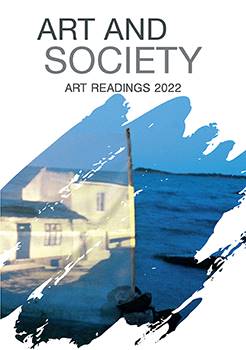1968 August occupation from the perspective of Slovak theatre makers
1968 August occupation from the perspective of Slovak theatre makers
Author(s): Karol MišovicSubject(s): Theatre, Dance, Performing Arts, Fine Arts / Performing Arts
Published by: Институт за изследване на изкуствата, Българска академия на науките
Keywords: Slovak theatre; history; Jozef Budský; Pavol Országh Hviezdoslav; socialism; the political situation
Summary/Abstract: The so-called “socialism with a human face” was an effort to democratise the communist system that marked the history of Communist Czechoslovakia in 1968. However, the Soviet Union did not support such political tendencies. Therefore, on the night of 20–21st August 1968, Czechoslovakia was unexpectedly invaded by the troops of five Warsaw Pact countries. Their goal was to suppress the “ongoing” contra revolution. The citizens opposed the invasion and expressed their opinions loudly on the streets against what was the most extensive military operation in Europe since World War II. Theatre makers immediately reflected the resistance and antagonism towards the invasion in their works. Almost none of the creations were just superficial oppositions against the occupation. Theatre makers expressed their attitude towards what transpired in August 1968 solely through the words in the plays by classic and modern authors. Unfortunately, they were able to establish new connections through storylines or themes that rendred the situation in the country concisely. The first such reaction, a staging of the oems The Bloody Sonnets and Rachel, written by Pavol Országh Hviezdoslav, premiered at the beginning of the 1968 theatre season (07.09.1968). Jozef Budský directed the poems as an open artistic gesture and presented it with the actors after only a couple of days of rehearsal. In their interpretation, Budský and the performers voiced the original meaning of the poems – aversion to the violence committed on the god-forsaken Slovak people. Other theatre makers worked on similar politically engaged productions with explicit references interwoven between the lines which were quickly decoded by the audience. Theatre makers described the unexpected situation in Czechoslovakia through text plots, actions of theatre characters, mise-en-scène, or scenography. The crisis triggered performers from studio theatres and authors to write plays with hidden messages referencing the August occupation. However, the openness of their expression led to the banning of many theatre makers, and several theatres were closed for political reasons. The presented study aims to summarise the historical relations of the occupation of Czechoslovakia and to briefly comment on several of the fundamental theatre productions that directly referenced the current political climate.
Journal: Изкуствоведски четения
- Issue Year: 2022
- Issue No: 2
- Page Range: 209-217
- Page Count: 9
- Language: English
- Content File-PDF

